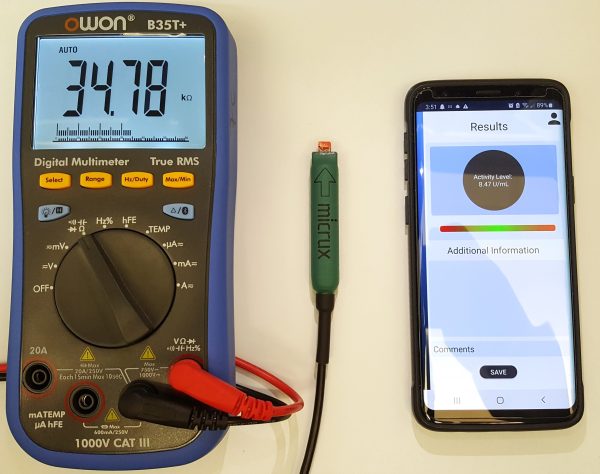UNC Charlotte researchers awarded NIH grant to develop mobile health technology to reduce farmworker health disparities

The National Institutes of Health’s (NIH) National Institute of Biomedical Imaging and Bioengineering has awarded UNC Charlotte researchers an R01 grant to develop point-of-care mobile health technology to reduce heat and pesticide-induced farmworker health disparities.
Professors Jun Wang and Xiuxia Du from the Department of Bioinformatics and Genomics in the College of Computing and Informatics serve as the project’s principal investigators. With a total amount of $2.1 million, this grant is also the first major award received by the University’s Ignite Center for Environmental Monitoring and Informatics Technologies for Public Health since its establishment in July 2023.
Farmworkers in the United States, who are predominantly Hispanic, are at high risk of developing acute and chronic diseases (e.g., chronic kidney diseases). Two top hazards of this work, extreme heat and pesticides, can combine to exacerbate negative health conditions for farmworkers. Moreover, climate change can worsen heat stress and insect stress resulting in more frequent and heavier applications of pesticides. Heat also exacerbates pesticide toxicity to humans.
All these factors are seriously increasing health risks for farmworkers. According to the Center for Disease Control and Prevention, heat-related illness for farmworkers is at a rate of 20 times greater than for the rest of US civilian workers. From 1992-2017, excessive heat exposure killed over 800 farmworkers and seriously injured over 70,000. The US Environmental Protection Agency (EPA) estimates that each year farmworkers suffer up to 300,000 acute illnesses and injuries from exposures to pesticides.


Aggravating this, farmworkers generally have limited access to regular healthcare due to physical, economic, infrastructural, knowledge and cultural barriers, which often means sick farmworkers cannot get diagnosed and treated in a timely manner. These factors may contribute to the short life expectancy (average of 49 years) of farmworkers. As a result, early detection and timely intervention is critical for farm workers to reduce the risk of developing various diseases caused by heat and pesticides.
This project aims to develop a smartphone-based multiplex nano-sensing platform and a health education app for farmworkers. The multiplex nanosensing platform is intended to allow for earlier and faster screening of pesticide exposure and kidney diseases using a tiny finger-stick of blood for farmworkers. The health education app is being designed for farmworkers to learn heat and pesticides-related health information. These technologies will be developed at UNC Charlotte and then validated through collaboration with The Farmworker Association of Florida, Inc., a grassroots state-wide organization that works closely with farmworkers on their wellbeing.
The long-term goal of this research is to reduce farmworker health disparity and improve farmworker health by providing farmworkers with inexpensive, efficient, and new mobile health technology for rapid home screening, point-of-care (POC) testing and health education.
“Currently available technologies for farmworkers to monitor their health issues caused by heat and pesticides are too expensive and take a long time to get results. We want to develop a rapid and affordable point-of care mobile health technology for farmworkers,” said Wang. “It will allow them not only to rapidly monitor the health issues but also to learn heat and pesticide-related health information. If successful, such devices would greatly protect them from exposure to heat and pesticides.”